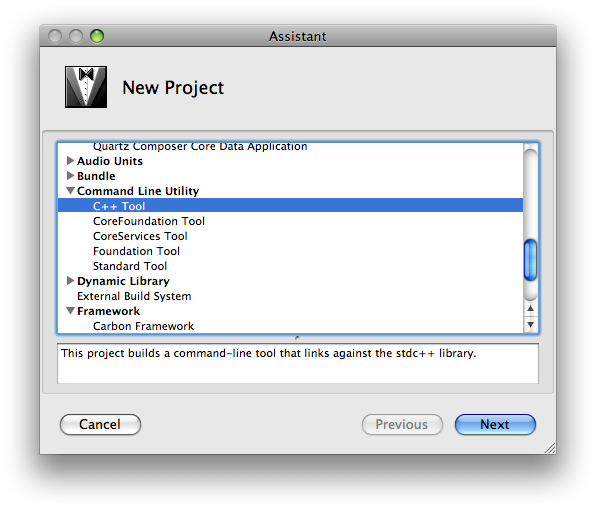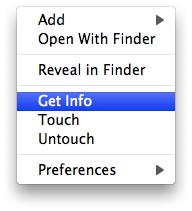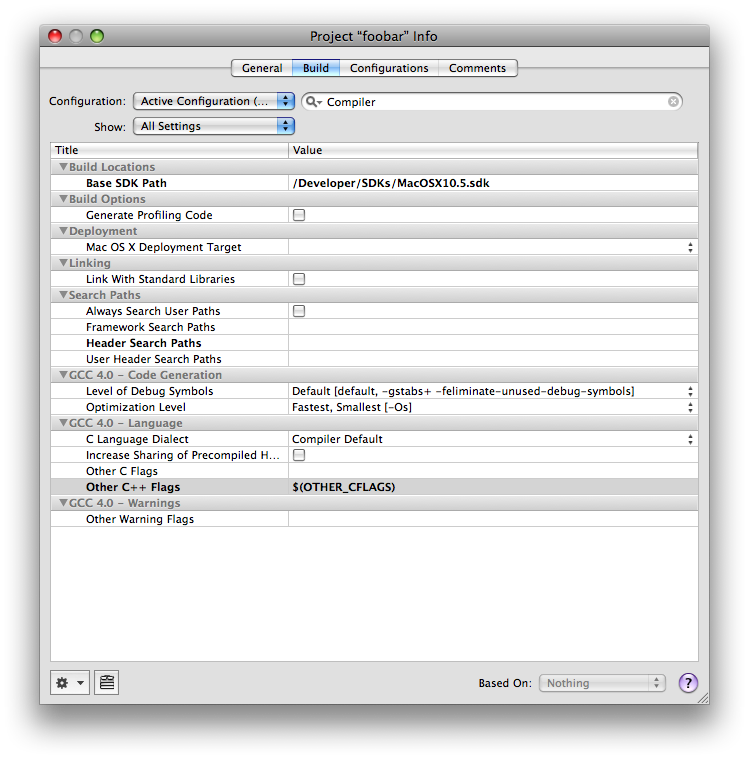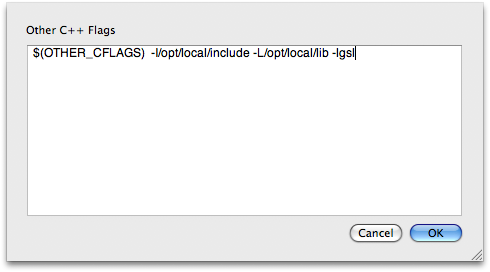This was a fun ride.
imported Cycling · RouteAsterisk on OS X
imported GeekLast time I tried to run Asterisk on OS X it was on Panther (10.3), and it really failed to work. It seems since I last looked, things have come a long way. When rearranging how my personal VoIP was configured, I was looking for a simple SIP proxy - however, the only one I could find immediately was Java based, and lacking on a few features that I wanted. Hence, I decided to check out if there were any better Asterisk packages available. I found the packages over at mezzo.net, and wow. Not only does their Asterisk build work properly (Voicemail, IAX2, and SIP-wise at least), it comes with some really nice modules. For example, the res_bonjour module announces your Asterisk server out over your local LAN as a Bonjour service - definitely useful if you’re trying to work out whether there’s a facility for VoIP outgoing calls for something like calling out straight from Address Book. However, the best thing here is app_notify.
iPhone SDK
imported Tech · Apple · GeekI finally got myself an iPhone - and am loving it. It’s great how I can now sync my calendars, and address book to my phone without having to worry at all about having six clones of each event on my calendar (which of course, makes it rather difficult to tell what I’m actually meant to be doing that day). However, a topic that has come up a couple of times in discussion with a few friends is that of the iPhone SDK. I feel that the big question here is, “Do Apple have enough incentive to make a fully featured iPhone SDK?”.
With a friend moving to work at a VoIP start-up that deals with having a client on mobiles that allows SIP calls to be made, the big discussion we have been having is whether the iPhone SDK will allow a VoIP client to be implemented on it. My initial feeling on this is, no - not initially. It’s been documented in a number of places that Apple are taking call revenue from the networks on each iPhone that is sold. If this is true, then it would be against Apple’s interest to actually allow a functional SIP implementation make it onto non-hacked iPhones - since they’re going to lose money if users start making their calls via SIP rather than via the cell networks (this assumes that Apple get revenue based on all calls - not just based on the actual contract worth).
However, I can’t say that I’m sure of this - Apple may only be taking their cut from the revenue that is generated from the subscription fee on each iPhone - rather than the additional calls, and in this case, they might feel that allowing users to utilise VoIP when they’re in a hotspot area would be another cool feature that the iPhone can offer. They might also feel that a lot of the iPhone users aren’t savvy enough to be using SIP very often - I guess something like Skype from hotspots (or iChat for voice, or Google Talk…) might be more popular with the less tech-savvy userbase. It’s hard to call really.
Alternatively, Apple might just wait until the networks stop paying them revenue, and roll the SDK with better network support then, increasing sales on a device that they’re no longer making such revenue on.
Either way, the iPhone really just slots in where a phone should, it works with wireless and a mobile-data mechanism without having to think about it at all (although I’d like an 802.1X implementation). Calendar data syncs, Mail accounts sync, my Music syncs, my contacts sync - it integrates with my (primarily Apple based) digital life very well.
I’m impressed with my iPhone - roll on the SDK so that I can start making it do even funkier things!
Linking against GSL With Xcode
imported Code · ic.ac.ukFurther to the previous comment, you can also link against GSL from within an Xcode project:
- Create an Xcode "C++ Tool" project from the command line projects options.

- Within the project Ctrl+Click on the project name, and select "Get Info"

- Use the Spotlight-esque search at the top of this window to search for Compiler, and select the "Other C++ Flags" text box.

- Into the box enter
-I/opt/local/include -L/opt/local/lib -lgsl
leave the$(OTHER_CFLAGS)
existing input there.
You should then be able to use the Build command in Xcode to build the project linked against GSL. This assumes that you install GSL from MacPorts as documented previously.
Linking against GSL on OS X 10.5 Leopard
imported Code · ic.ac.uk · TechSince I’m taking the Computational Physics module in my third year at IC, we’re using some libraries like GSL to provide “better-than-default” random number generators and such like. It turns out that those of us using a Mac don’t get GSL installed by default with Xcode, or under OS X - and unlike Windows and Linux - there’s no instructions on the course site. Here’s a really quick way to ensure that you can link against it:
New Look
imported Code · rob.shAs it turns out - it’s pretty easy to code up a very basic blog application and integrate it with your existing flat-file site in Django. In fact, it fits very nicely into the 20 minute gap that you’re taking to try and make sure that you can sleep!
There’s also some semblance of a design here now.
« Newer Post Index
